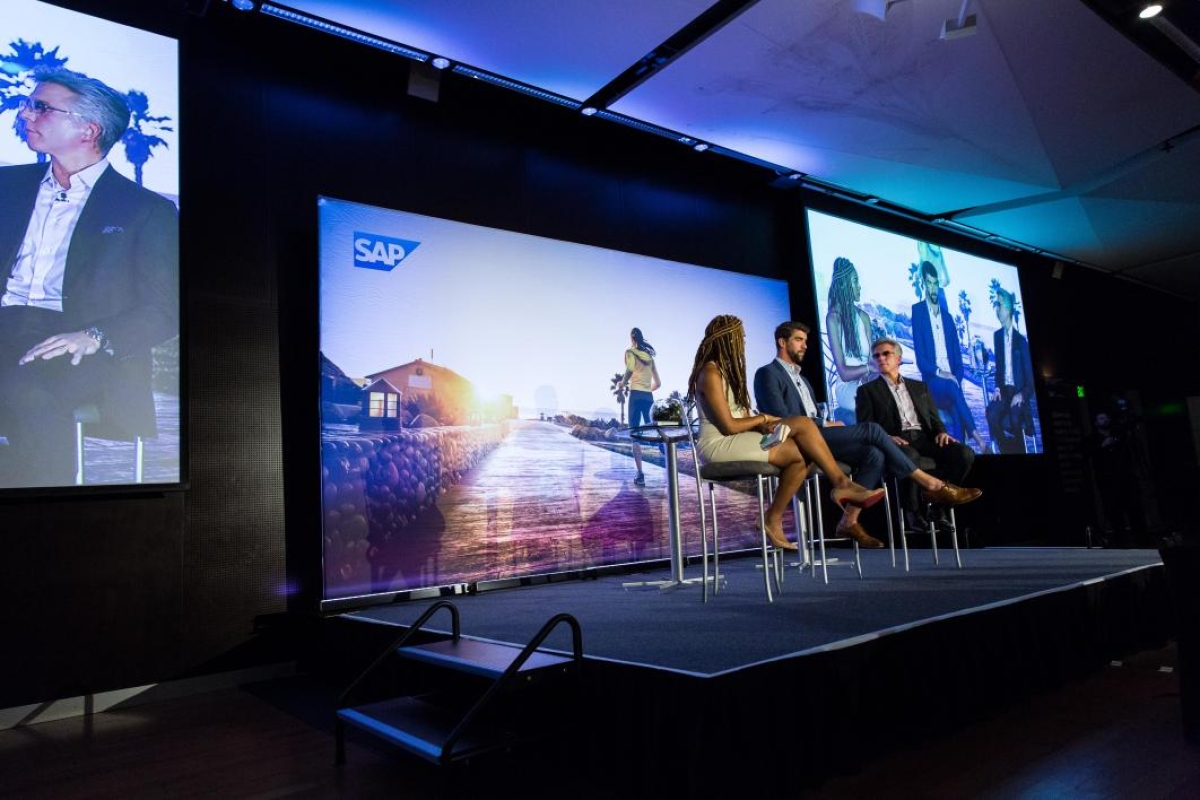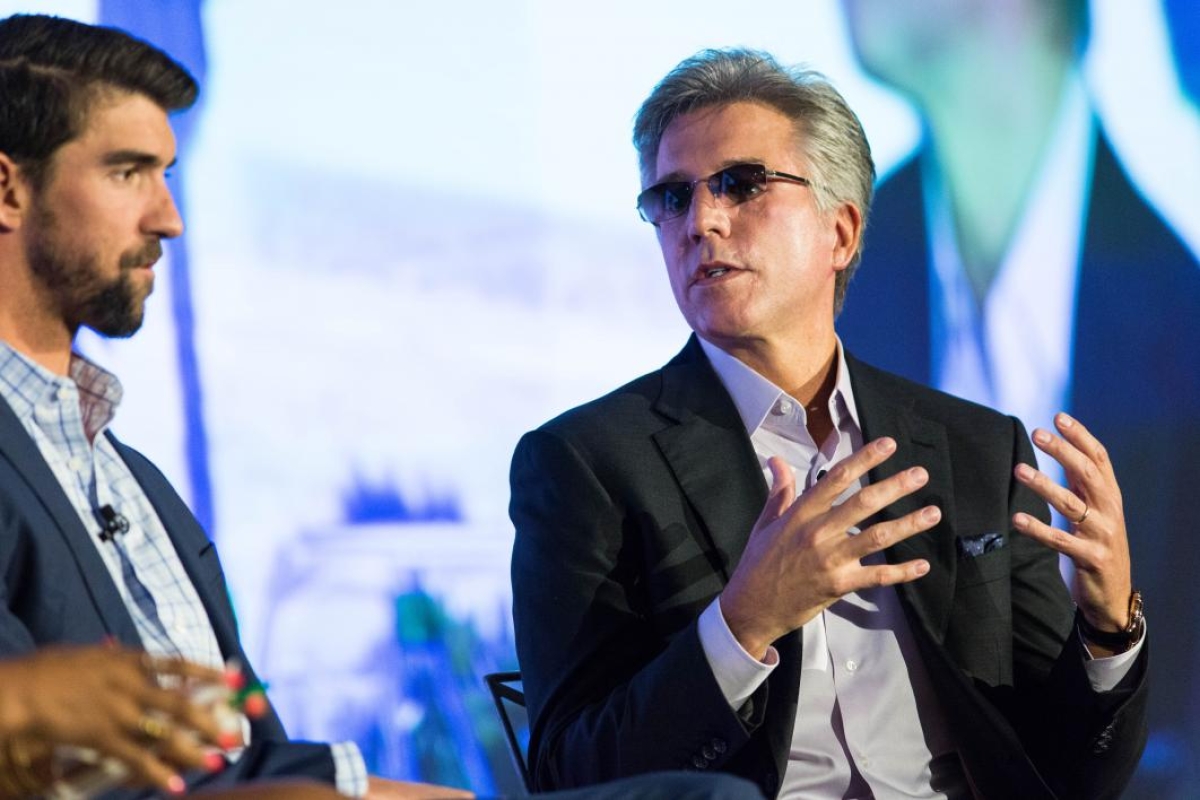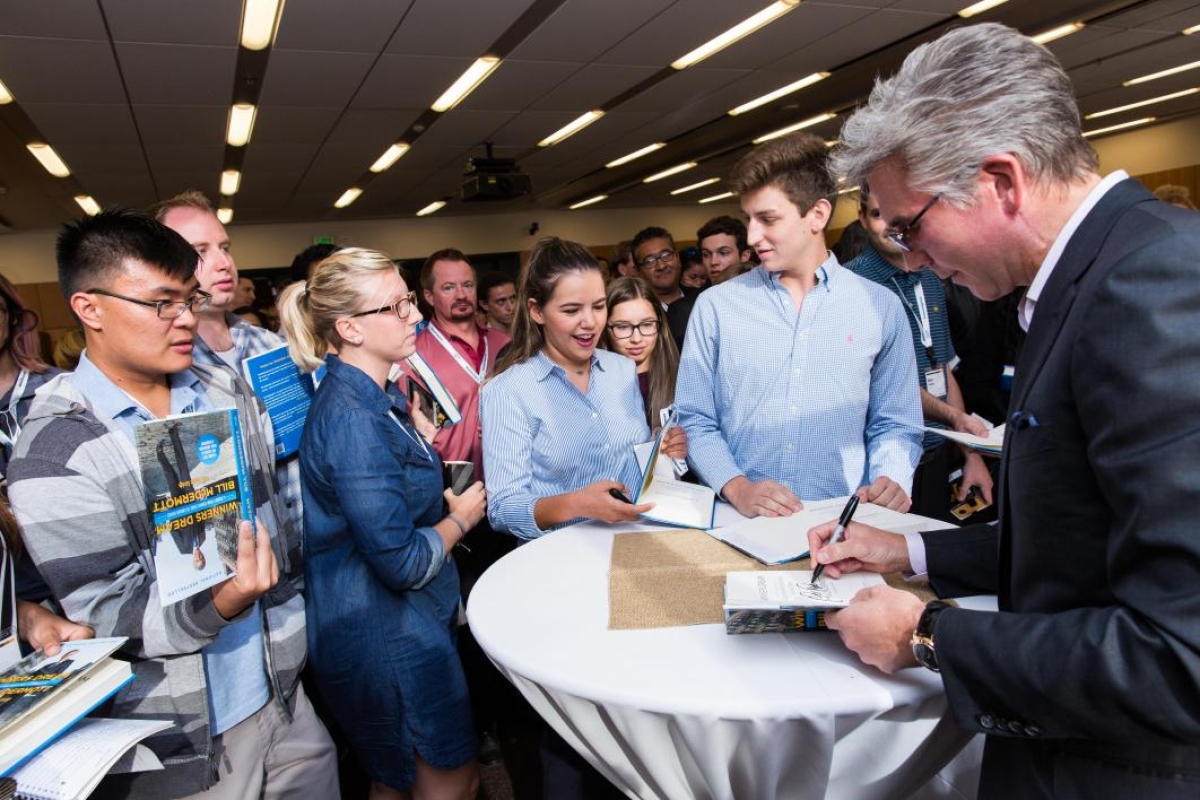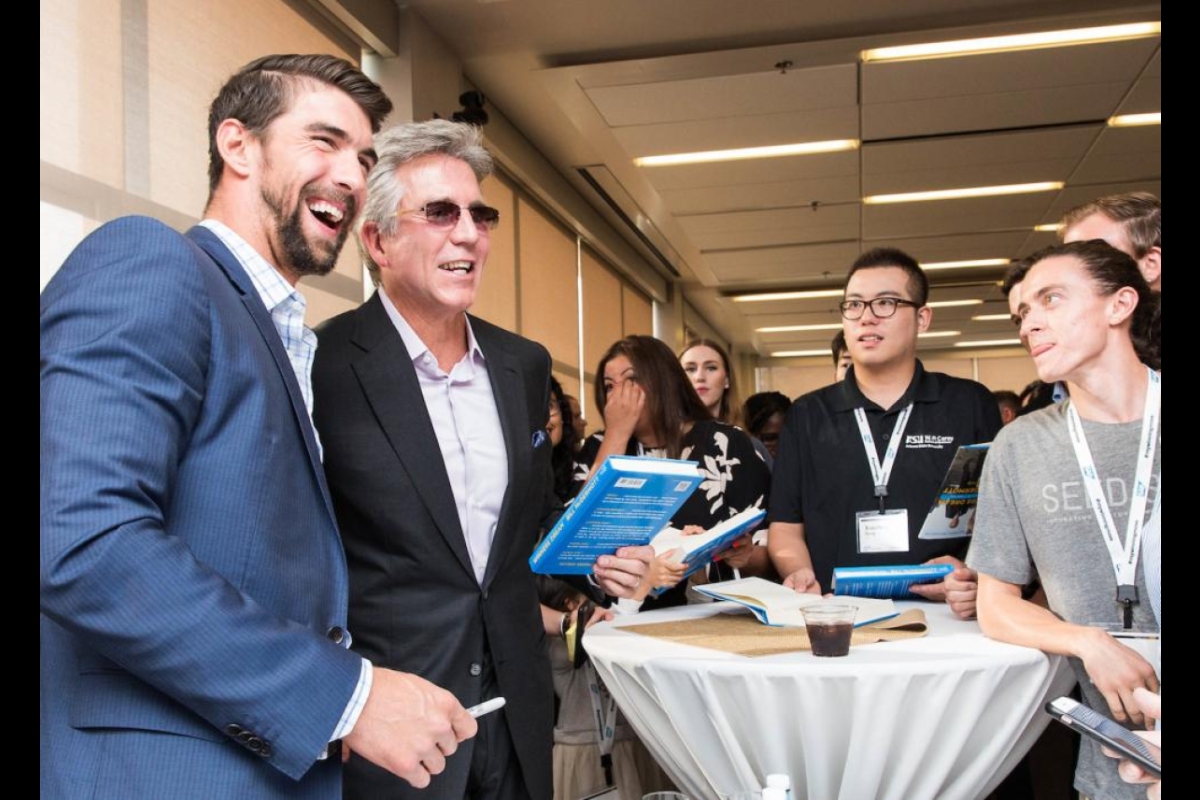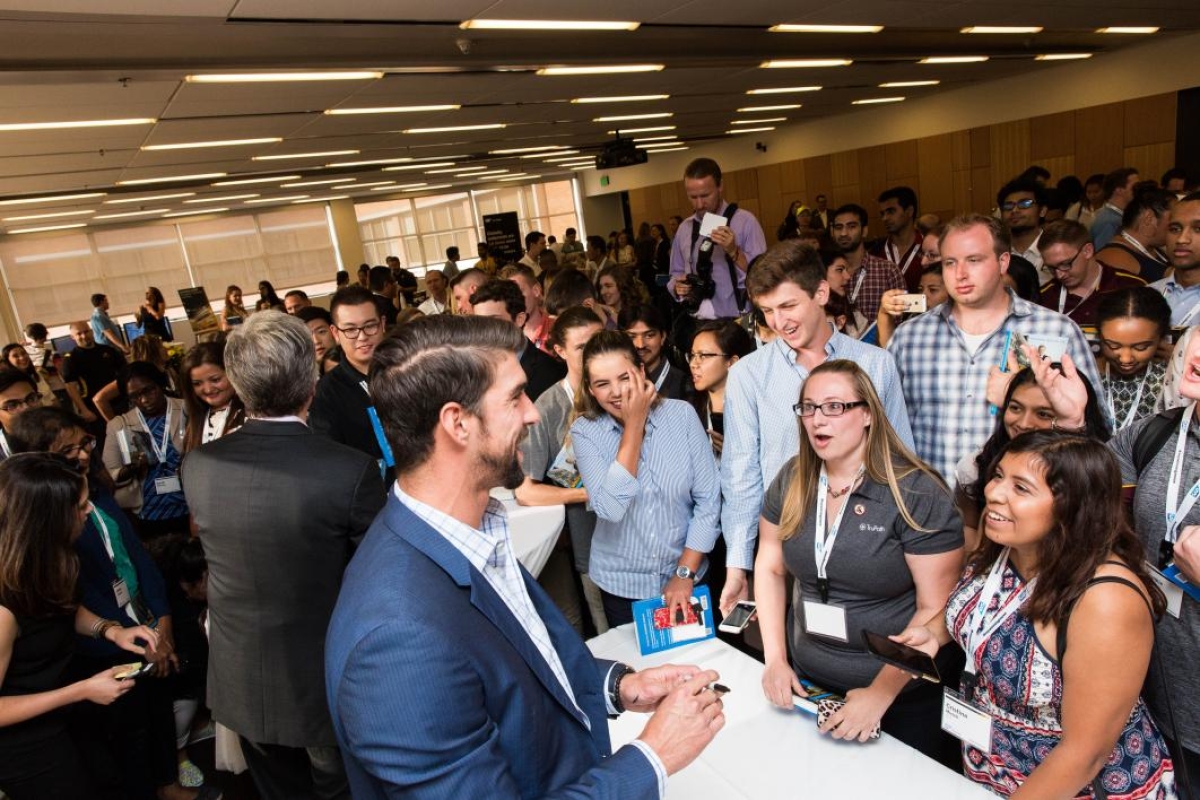Michael Phelps talks about the secrets of his success (and that shark 'race') at ASU
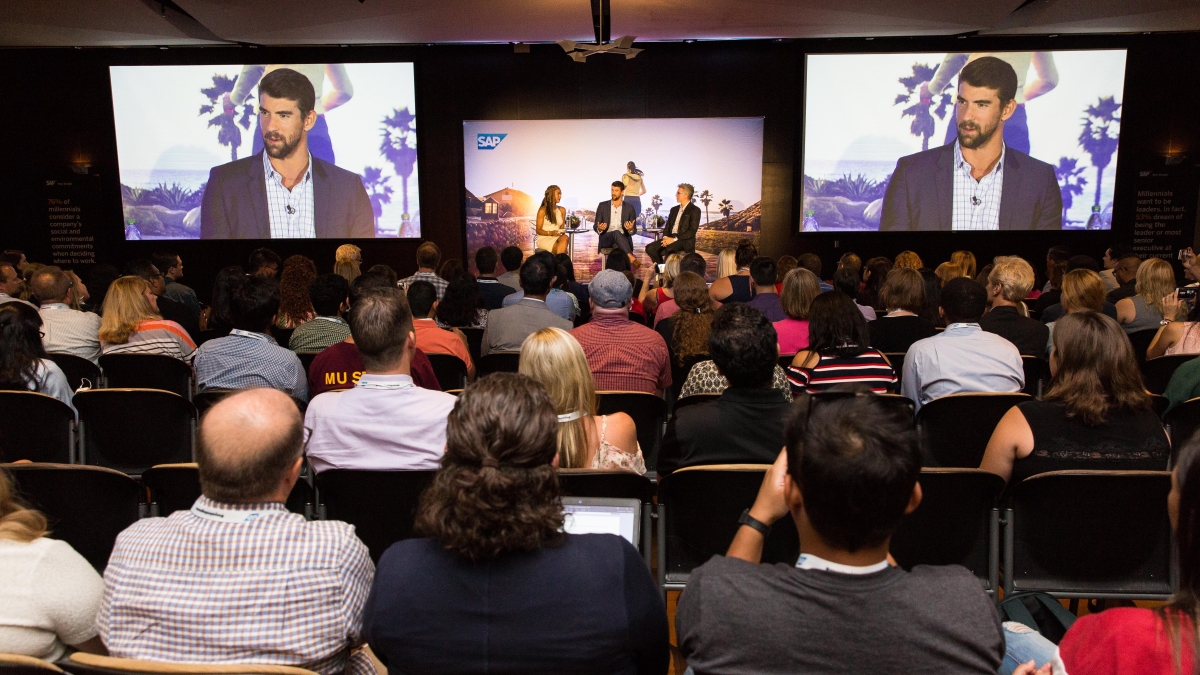
For Michael Phelps, the journey to becoming the greatest Olympian in history began with a piece of paper.
“Write down your goals,” he told a room full of Arizona State University students Monday evening on the Tempe campus.
“I was taught at an early age to write my goals down, and I’ve been doing it since I was 11 years old. I put them in a place I could see them every day.”
Phelps discussed his path to glory as part of a presentation on leadership called “The Winning Move” that also featured Bill McDermott, the CEO of SAP, a global technology company.
“I went through ups and downs personally, publicly, in the pool. There were times I was more dedicated than not,” said Phelps, who has won 28 Olympic medals, 23 of them gold.
“The great ones do things when they don’t want to. Every day I woke up at 5 or 6 in the morning to jump in a cold pool after being in a nice warm bed. It wasn’t fun, but I had goals I wanted to achieve. It was 365 days a year, 100,000 yards a week.”
McDermott discussed how, when he was a 16-year-old living in Long Island, N.Y., he bought the corner deli he was working at for $7,000. For him, it was a practical move.
“I went from having three part-time jobs to having one,” he said.
Both men have been tested by profound personal adversity. In 2015, McDermott fell down the stairs while holding a glass of water. A shard of glass went through his left eye, and he suffered great blood loss. He lost his eye and endured nearly a dozen surgeries.
“People said, ‘That must have built a lot of character in you.’ It didn’t build an ounce of character, but it did reveal everything about my character,” he said.
In 2014, Phelps was in dark place after facing his second charge of driving under the influence.
“I had no self-confidence, no self-love. I hated myself. I was at a place where I didn’t want to be alive anymore. It took me a long time to look in a mirror and like who I saw,” he said.
“That moment where I put my hand out for help, I found out who I am.”
Both men said that they hope to be remembered for more than their career achievements.
“As you get advanced in this leadership game, it’s not just wanting to be somebody. It’s about doing something and leaving your mark on the world,” said McDermott, whose company hires a lot of young people just out of college.
“Young people today don’t want to work unless they can change the world too,” he said of changing SAP’s corporate culture to embrace inclusion.
Phelps started an eponymous foundation in 2008 that promotes water safety for kids, but he’s especially passionate about a new project that addresses mental health. He has been working with the company Medibio on a wearable device that tracks mental health indicators.
“I’ve been talking about mental health, destigmatizing it. I sat next to an 11-year-old boy the other day who wanted to kill himself,” Phelps said.
“I’ve been able to overcome these obstacles, but I didn’t do it alone. It’s OK to ask for help, and it’s OK to not be OK.”
Phelps came to Arizona in 2015, following his longtime coach Bob Bowman, who had been named head coach of the Sun Devil swim teams. Phelps then trained for the 2016 Rio de Janeiro Olympics at the Mona Plummer Aquatic Center at ASU. He immersed himself in Sun Devil life, appearing in the “Curtain of Distraction” at a men’s basketball game in January 2016 and swimming in an exhibition race during an ASU meet. A few months before he won six medals at the Rio Olympics, he got married and had a son.
“For me, mentally, to see sunshine and blue skies every day is awesome,” he said. “People always ask if I’m coming back, but I’m content with what I achieved in my swimming career.”
But his competitive spark isn’t completely gone. Phelps was part of the Discovery Channel’s “Shark Week” programming, which broadcast a simulated “race” on Sunday night, comparing Phelps’ time against that of a great white shark. The shark was faster by two seconds.
“I got whooped,” Phelps said. “That’s a butt beating to me. Instantly after the race I tweeted, ‘Rematch!’ ”
Top photo: Michael Phelps talks about how he sets goals during "The Winning Move," a conversation facilitated by sports analyst Rosalyn Gold-Onwude between Phelps and SAP CEO Bill McDermott on Monday in Tempe. Photo by Deanna Dent/ASU Now
More Sun Devil community
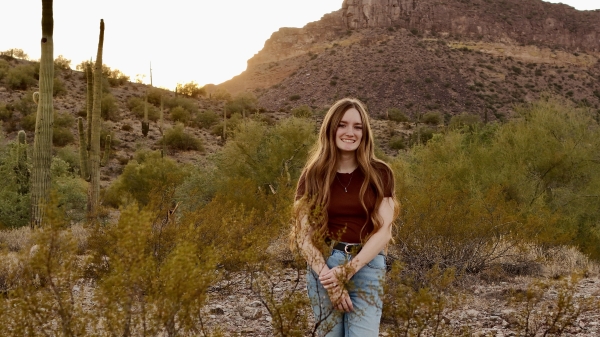
Crime shows led December graduate to a degree in forensics
A fascination with science, the details behind solving cases and crime-focused television shows guided Gracie Thompson to pursue forensic science studies at Arizona State University.“I grew up…

There's no stopping this global health undergraduate
If the end depends on the beginning, Esha Kubavat has set herself up for success. The Naperville, Illinois-born and Anthem, Arizona-raised undergraduate is graduating in December with a bachelor’s…
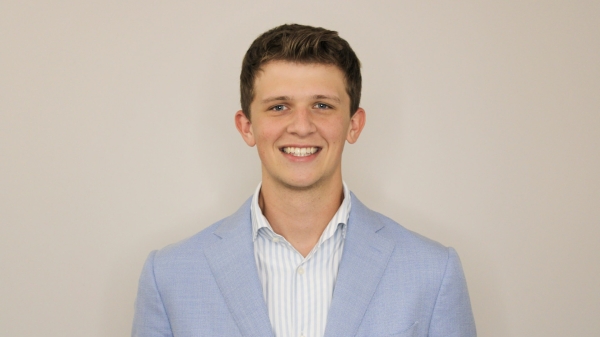
Student leader shares journey in finance and campus community
Chase Mathias first realized that the medical field might not be for him during a high school biology class when he passed out while dissecting a pig. Though he dreamed of becoming an…
